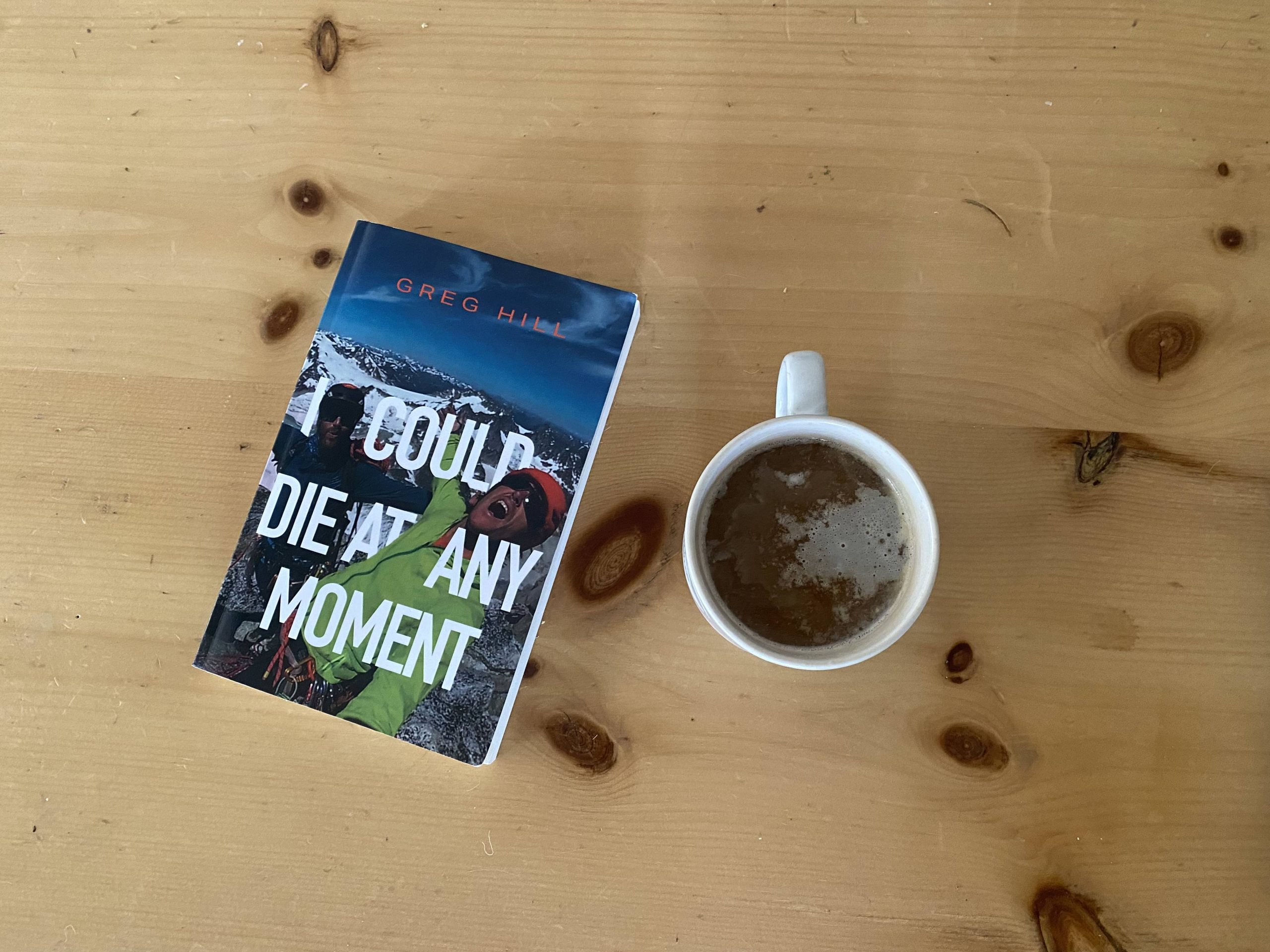
I Could Die at Any Moment. It’s a chilling sentence, but one that suits the cover of Greg Hill’s new memoir. The legendary Canadian skier is perhaps best known for ski touring 2 million vertical feet in one year, earning him the nickname 2 Mill Greg Hill. His memoir expands on his life, diving into a childhood in Quebec, grueling summer jobs in B.C. and, most importantly, his ongoing quest to understand the parallels between life at home with his family and his path in the mountains.
“By nature, I am an adventurer, a risk-taker, and a lover of life on the edge. I can say that this is who I am and will forever be; this is built into my unchangeable DNA. I worry that if I die on some adventure, whether skiing a steep face, climbing a narrow ridge, or searching for the next thrill, you will never really understand why I couldn’t stop. I fear that you will never ‘get’ why I needed to live the way I have. This story is my way of sharing the great life I have led, and hopefully, it will clarify why I could choose no other path but this one,” writes Hill in his Introduction.
He’s upfront about the innate risk of spending a lifetime in the mountains. As he explains, his framework of thinking follows The Adventurer’s Pact: an agreement with yourself that to truly immerse yourself in an experience, you must accept the potential consequences of what you’re doing.
It’s a reference he returns to during a laundry list of close calls, tragedies and successes: Shivering in a snow cave with a broken leg while in the Karakoram, skiing out of large avalanches while solo in the mountains or fruitlessly searching for avalanche victims as an entire camp was buried on Manaslu in the Himalaya. And he’s not shy about the sacrifices and changes that accompany his life choices. It’s rare to hear an internal monologue as frank and honest as in this memoir.
To look at death and fear it and then live because of that perspective is special. Hill does a better job than most laying out his decision making in plain and simple facts that feel relatable to the average person. Throughout, I was forced to reflect on my relationship with the mountains. Have I considered everything? Most importantly, have I accepted the potential consequences of my actions? While reading Hill’s book I spent as much time pondering my own life as I did learning about and from his.
While very few of us will ever come close to the feats Hill has accrued in his lifetime, there’s a salient thread to anyone, even if you never leave the city: Death is inevitable, why not recognize that fact? Hill’s approachable writing means that, while his book spoke to me as someone who spends time in the mountains, you don’t need a familiarity with the subject to learn from his wealth of experience.










Related posts: